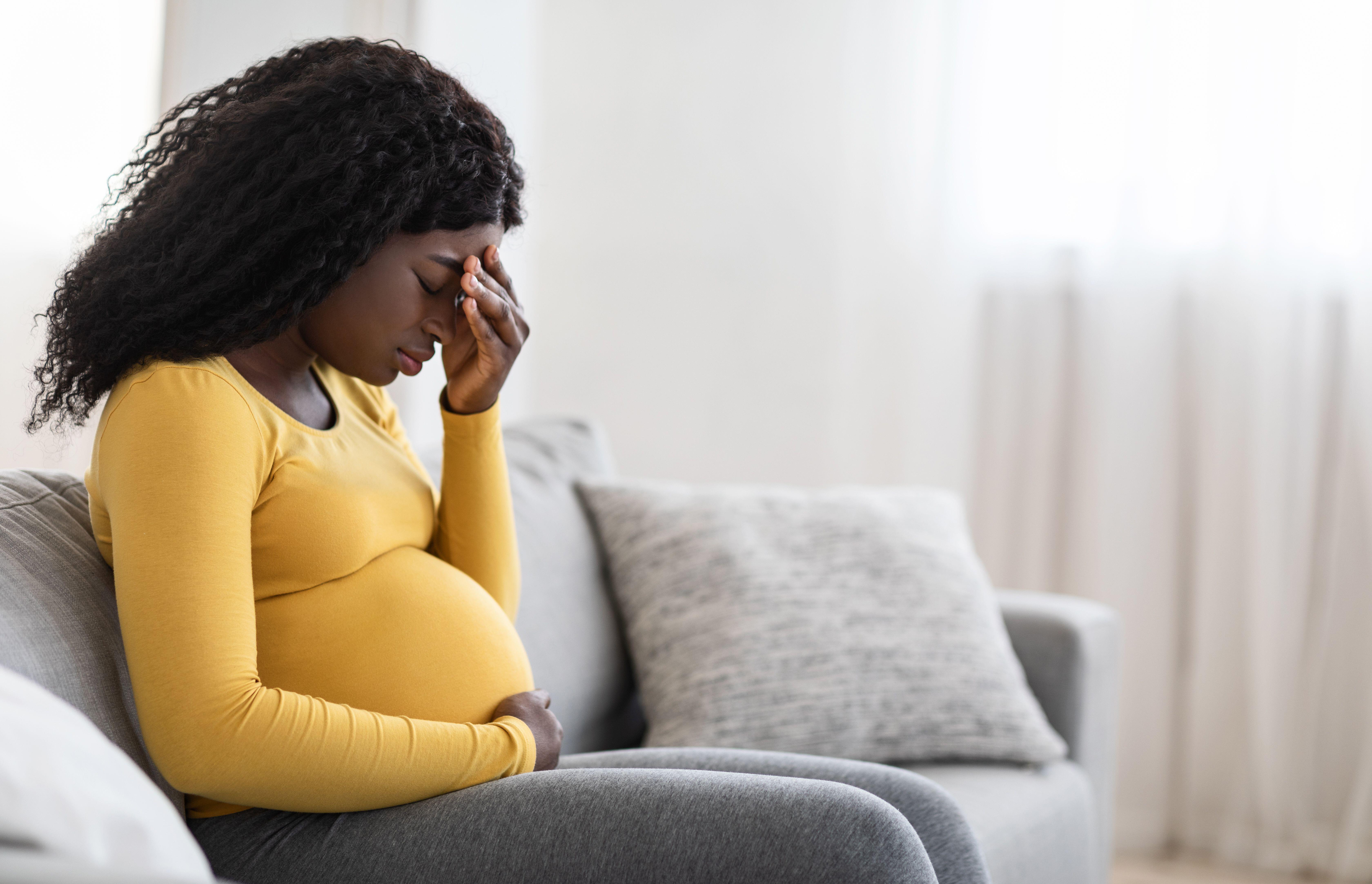Nausea and vomiting in pregnancy is debilitating – calling it ‘morning sickness’ trivialises women’s suffering
During both of my pregnancies I spent months feeling seriously unwell, day and night. Current terminology misleads those around us to think of pregnancy sickness as a minor inconvenience

Your support helps us to tell the story
From reproductive rights to climate change to Big Tech, The Independent is on the ground when the story is developing. Whether it's investigating the financials of Elon Musk's pro-Trump PAC or producing our latest documentary, 'The A Word', which shines a light on the American women fighting for reproductive rights, we know how important it is to parse out the facts from the messaging.
At such a critical moment in US history, we need reporters on the ground. Your donation allows us to keep sending journalists to speak to both sides of the story.
The Independent is trusted by Americans across the entire political spectrum. And unlike many other quality news outlets, we choose not to lock Americans out of our reporting and analysis with paywalls. We believe quality journalism should be available to everyone, paid for by those who can afford it.
Your support makes all the difference.Pregnancy sickness, in its most extreme form, can be life-threatening. A new study which surveyed more than 5,000 women suffering from hyperemesis gravidarum found that 4.9 per cent of women terminated a wanted pregnancy (whilst over half considered it) and 25.5 per cent of women thought about suicide.
Even without a diagnosis of hyperemesis gravidarum, nausea and vomiting in pregnancy can be debilitating and depressing. During both of my pregnancies I spent months feeling seriously unwell, day and night. Any motion, even turning over in bed, could trigger a wave of retching. I felt like I was constantly sea sick, trapped below deck and unable to find the horizon. The first time I clung to my mattress as if it were a life raft. The second time I had a toddler to look after, so I shuffled around the house clutching my sick bowl. The nausea stopped me working, reading, writing, cooking or doing much at all. When I left the house, I carried sick bags and mints.
But do you know what compounds this suffering? What adds insult to injury? When people call it “morning sickness”. Most definitions of “morning sickness” acknowledge that it’s a misnomer. The Oxford English Dictionary’s definition says it is “a sign of pregnancy, occurring at any time of day”. Talk about broken language. To paraphrase George Orwell: “War is peace. Freedom is slavery. Morning is any time of day.”
Last year, research led by the University of Warwick confirmed that pregnancy sickness was no morning phenomenon. The researchers analysed hourly diaries kept by women in early pregnancy. Vomiting was most common in the morning, but over 13 per cent of participants vomited at any given hour between 7am and 10pm. Nausea also peaked in the morning but was highly likely to occur throughout the day, with over 60 per cent of participants experiencing nausea in any given hour between 7am and 10pm.
Study author Professor Roger Gadsby, who founded the charity Pregnancy Sickness Support, says the term “morning sickness” is “inaccurate and misleading”. He would like to see the public, the media and healthcare professionals dump the term. “Morning sickness” implies that anyone experiencing symptoms in the afternoon is unusual, which isn’t true.
I became increasingly frustrated replying to well-meaning messages asking how I was feeling. When I said that I’d had a miserable day and thrown up lunch and dinner, one friend replied, “Sounds more like an all-day sickness”. I had to bite my hand to stop myself from screaming, “It is an all-day-sickness”. I can’t blame my friends for taking words at face value. The terminology diminishes and trivialises the suffering of women and misleads those around us to think of pregnancy sickness as a minor inconvenience confined to the mornings.
When did the misnaming begin? There is frustratingly little information about the etymology of “morning sickness”, but it wasn’t always with us. Researcher Rachael Russell found that prior to the 1830s the name most generally used was “nausea and vomiting of pregnancy” or “pregnancy vomiting”. “Morning sickness” appears to have originated in specialist lectures of the 1830s and 1840s and was in common usage by the middle of the century. Why are we still allowing women to be gaslighted by a term from the mid-1800s?
Other countries don’t have this problem. For example, the French, Swedish, Spanish and Italians all commonly use the more generic “pregnancy nausea” or “pregnancy sickness”. The Russians have their own medical word which evokes the toxic state of pregnancy. It’s time the UK followed suit.
Hundreds of thousands of women will be suffering from pregnancy sickness right now. The ones with the requisite fury in their bellies to raze “morning sickness” to the ground are probably unable to read this article. They’re likely in a foetal position, blocking out the world and willing the days away. Our best activists for this idea are out of action. But women don’t forget. Having recently given birth to my second child, I’m indescribably relieved to be living free of nausea again. Wellness feels like a superpower. I want to use it to consign “morning sickness” to the dustbin of history and ensure that this illness is taken seriously. Who’s with me?
Join our commenting forum
Join thought-provoking conversations, follow other Independent readers and see their replies
Comments